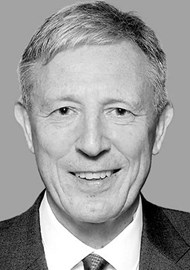Para 64: “Mr Leung’s submission that the defendant was likely under a false sense of security that no adverse events would arise given the previous uneventful liposuction, using similar sedative medication performed on Lee, is unsound. If on the previous occasion what the defendant did was the same, or similar to, this occasion, it was perhaps purely fortuitous that a fatal or serious outcome did not follow. The fact that something is done erroneously previously and nothing adverse happened does not make it right.”
Let me put this little diversion from the Judge in a different light. Dr Kwan had first experienced the use of intravenous propofol as used by doctors in private practice in Hong Kong. She subsequently travelled to South Korea to acquire knowledge and experience from the best cosmetic surgeons in the world. Is this not what we wish for? That our specialists should bring skills to Hong Kong to enhance our international reputation? And they do that by training at the hands of masters. So, Dr Kwan had travelled to the Mecca of cosmetic surgery and had observed various standards of practice. These included the recommended dosage of intravenous propofol to be given during a minimally invasive plastic surgical procedure such as liposuction.
This is the dosage Dr Kwan gave on that fateful day, but it was the same as she had given to the same patient just weeks before and to nearly a hundred patients before that.
I was troubled by the Judge’s response and wondered what a mathematician would have thought of it. So, the following emails ensued:
“Anyway Bruce, I want to ask you a question that relates to expectations, experience and probability.
A Hong Kong doctor goes to South Korea to learn about cosmetic surgical procedures. Of note: South Korea has enjoyed the reputation of being the worlds best destination for cosmetic surgery tourism. The Hong Kong doctor learned about the surgical management of common cosmetic procedures, and also how to manage procedural sedation in the clinic setting. What they learned was that for sedation, a patient-weight determined rate of infusion of propofol was routinely given, and that there were no safety concerns.
The doctor returned to Hong Kong and followed the Korean teaching with no problems from 99 patients. Then on the 100th case the patient died. An Australian anesthetist declared in open court that in her opinion the Korean dosages were too high and the validity of her opinion was substantiated by the death of the patient. Defense counsel objected, saying what about the 99 successful cases? The Judge when summing up declared: 'The fact that something is done erroneously previously and nothing adverse happens does not make it right.'
How does the mathematician respond to the Judge?”
You see the problem of course is that the Judge is looking at an inverse reality. And distorting it. She is comparing only two occurrences and completely ignoring over 90 relevant other cases and a history of source. This was not a dosage of Dr Kwan’s imagination.
So, my friend, whom is a modern-day humanist, gave the following response:
“I think the mathematician or medical statistician might think in terms of Bayes' theorem, but would probably spare the court the details. The meaning of "no safety concerns" probably varies from place to place and probably hides some known low-probability outcomes. The question of informed consent looks important here, though that's not in itself a concern of the mathematician. The customer or patient would need an idea of how routinely that sedative dosage had been used as well as the numerical risk of whatever adverse outcomes were known. It feels different to be the hundredth or the millionth guinea pig (this is Bayes). The argument that the death proves the dose was too high is a play to the emotions of the grieving relatives, it doesn't help with assessing the doctor's negligence or otherwise. The Judge's remark, while true, begs the question of what is erroneous.”
Thank you to my dear friend Bruce Cameron.
This week I learned of a startling failure in the appeal process which really, I knew deep down was always there. The appeal court is essentially not there to re-examine fact but to review process. That is not an appeal. It is an abomination and abrogation of accountability.
I do want to conclude this section quickly but the unbelievable nonsense in this judgment must be shared, and another few critique-style blogs will follow. (To be cont.)




